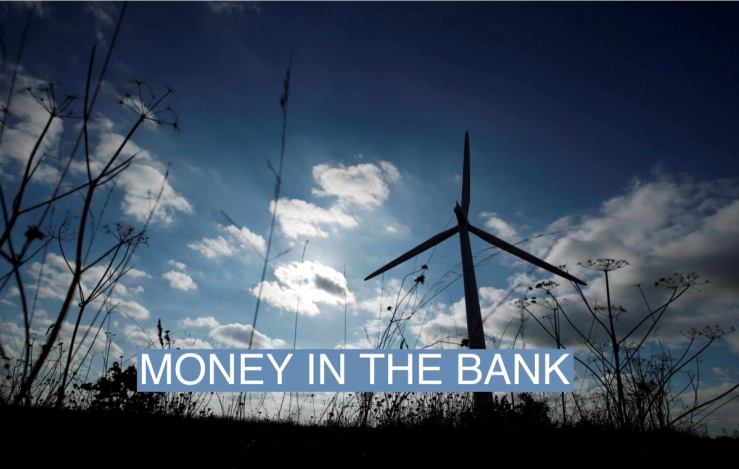The News
Renewable energy companies are lobbying U.S. financial regulators over proposed rules they fear would hammer their businesses and slow the rollout of green power.
Major developers and trade associations have met with the Federal Reserve, Federal Deposit Insurance Corporation, and the Office of the Comptroller of the Currency to try to carve out an exemption from rules aimed at strengthening financial stability more broadly.
The proposed rule could “threaten the number of renewable projects that are deployed across the country, and therefore threaten larger decarbonization goals,” said Brett White, vice president of regulatory affairs at Pine Gate Renewables, a utility-scale solar developer based in North Carolina.
Know More
The proposals, unveiled in July, are part of efforts by U.S. regulators to comply with long-planned international financial regulations known as the Basel III framework. These new rules increase banks’ capital requirements — the amount of money they must hold — for certain types of lending.
Several banks have already complained about the rules more broadly, but renewables developers — as well as some Wall Street executives — point in particular to increased capital requirements for tax equity, in which a bank takes an ownership stake in a renewables project and pockets the tax credits. Renewables developers rely on tax-equity deals to help bridge financing gaps, in effect selling the tax credits they are due to receive at a small discount; that gets them additional capital for a project, while the buyer acquires a tax credit for less than its full price. The Inflation Reduction Act also made it possible for project developers to sell their tax credits independent of an equity stake. Between these trades and traditional tax equity, some analysts project the clean-energy tax credit market will quadruple in the coming years to around $80 billion.
The new rules increase banks’ capital requirements to take on tax-equity deals from 100% — basically holding a dollar for each dollar of tax equity they finance — to 400%. Because banks are a major customer when it comes to tax-equity deals, clean-power developers worry the new rules could cripple them and, by extension, the energy transition. Some also voiced frustration at regulators extending the comment period on the proposed rules from the end of November to mid-January, drawing out the uncertainty of whether and how the rules will be implemented. JPMorgan’s chief financial officer said last month, meanwhile, that the bank “may simply need to exit” entire business lines such as renewables tax-credit investments, while Wells Fargo’s CFO said it would likely shrink its tax-equity investments were the new rule to be implemented in its current form.
In remarks last week to the Senate’s banking, housing, and urban affairs committee, the FDIC chair acknowledged that regulators had received “comments that raise attention to this issue that we may not have fully appreciated,” while Fed vice chair Michael Barr acknowledged to the House financial-services committee that they had received evidence indicating “these types of instruments have lower risk than other equity investments” which regulators “would consider internally.”
Prashant’s view
To some extent, U.S. financial regulators are faced with an impossible choice: Prioritize financial stability above all else after a year in which three major banks collapsed in quick succession and risk slowing the energy transition, or erode what some analysts see as critical reforms to strengthen banks’ balance sheets.
Choosing the former, while understandable, would pile significant pressure on an industry — clean-power development — that is already facing serious macroeconomic challenges, notably persistently high interest rates: Higher rates disproportionately affect renewables developers because their projects have higher upfront costs, and tend to offer lower (albeit more dependable) returns than fossil fuels.
Barriers to tax-equity financing could sap banks’ enthusiasm for one of the IRA’s biggest financial innovations — allowing these tax credits to be traded more easily — thereby making it harder to finance the construction of major renewables projects.
“The Basel III proposal includes provisions that would throw cold water on tens of billions of dollars of solar and storage investments over the next decade,” Sean Gallagher, senior vice president of policy for the Solar Energy Industries Association, said. “The timing couldn’t be worse.”
The View From Europe
Given these proposed rules are derived from an international agreement, the U.S. is not alone in implementing new banking regulations, though the impacts have been felt differently across the world: European regulators have been putting similar — though not identical — restrictions on banks on the other side of the Atlantic. But as one senior lawyer I spoke to noted, because the U.S. is more reliant than the European Union on capital markets to fund its businesses, American companies will be more significantly affected than European ones, which tend to be financed through direct bank lending.
Room for Disagreement
The case for the regulations is straightforward: Though the renewable-energy industry has seemingly unstoppable momentum, a banking crisis would hugely damage the speedy deployment of clean power by constricting financial institutions’ willingness to lend money more broadly.
At a recent conference in London, one banker also said that while the broader economic environment was arguably less favorable to renewables companies than it had been in recent years, interest rates were still far below levels seen in decades past, and in any case, businesses — both in the clean-energy industry and beyond — would need to get used to life in a post-zero interest rate world.
Notable
- The global law firm Davis Polk outlined the implications of the proposed financial regulations in a — 243-slide — presentation.


